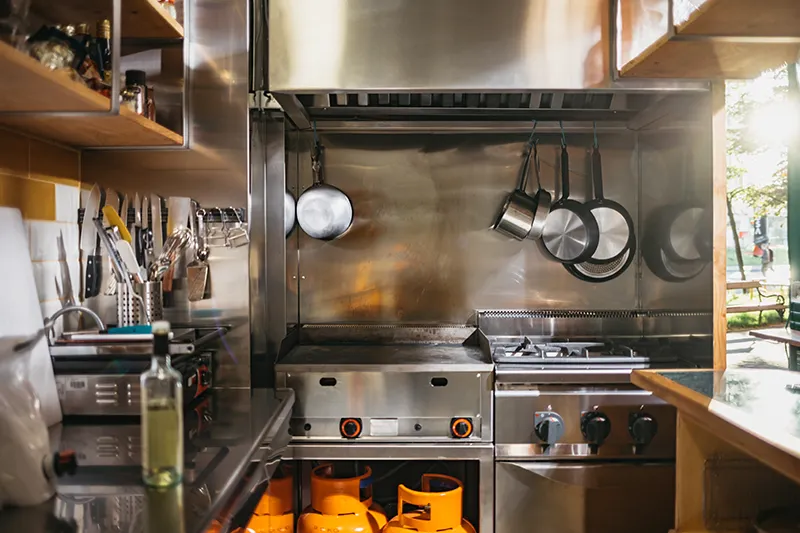
Pests are a serious concern for the food service industry, jeopardizing food safety, business reputation, and adherence to health regulations. Effective pest control measures are essential to maintaining a clean environment for both staff and customers. Discover how to prevent common restaurant pests and avoid infestations.
Get A Free Quote
Inquiries
(800) 236-8735
German Cockroach
German cockroaches are dangerous carriers of diseases and allergens, posing a major health threat, especially to children. They carry 33 strains of bacteria, six parasitic worms, and numerous pathogens. Their fast reproduction makes control difficult, and their allergens can trigger asthma attacks. They also contaminate food and cause damage to surfaces.
German cockroaches are attracted to the heat and humidity found in kitchens and service areas, which makes these spaces highly vulnerable to infestations. They can also be unknowingly transported via employees’ personal belongings.
Prevention Tips for German Cockroaches:
- Exclusion: Prevent pest entry by sealing cracks, gaps, and openings, and avoid introducing cockroaches through shipments or packaging.
- Storage: Have employees store personal items in designated areas to avoid spreading pests.
- Sanitation: Keep the area clean by inspecting deliveries, minimizing food debris, and implementing strict hygiene standards.
Filth Flies
Food establishments are vulnerable to filth flies, which spread bacteria and contaminate surfaces. Breeding in decaying organic matter, they transfer germs to food and preparation areas. Their fast reproduction complicates control efforts, and an infestation can result in fines and a tarnished reputation.
Filth flies are often attracted to outdoor trash bins and dumpsters, which can serve as an entryway into the facility. Prolonged door openings further heighten the chances of an infestation.
Prevention Tips for Filth Flies:
- Door Control: Keep doors shut or use well-fitting screens to keep flies out.
- Vent Screening: Cover vents with screens to prevent fly entry through open spaces.
- Physical Barriers: Implement roll-up doors or vestibules to safeguard sensitive areas.
- Air Barriers: Use air systems to create a shield at entryways to block flies.
Rodents
Rats and mice carry harmful diseases such as salmonella, hantavirus, and leptospirosis, while also contaminating surfaces with their feces, urine, and saliva. Their constant gnawing can weaken structures, damage wiring, and increase fire hazards. Managing rodent infestations is crucial for public health and property safety.
Rodents can infest both indoor and outdoor spaces. Mice favor warm, hidden areas, while Norway rats typically stay near ground-level entry points. Roof rats, on the other hand, are more likely to occupy attics or ceiling voids.
Prevention Tips for Rodents:
- Declutter Spaces: Keep areas organized and avoid placing boxes on the floor to reduce rodent hiding spots.
- Inspect Regularly: Look for signs of rodent activity, such as droppings, gnaw marks, or food damage, to identify infestations early.
- Seal Openings: Close any gaps or holes wider than a pencil to prevent rodents from entering.
Keep pests out of your restaurant. Call Terminix Wil-Kil Pest Control today to protect your business!
Common Pests of the Food Service Industry in Sun Prairie, WI
Terminix Wil-Kil Pest Control is a local Pest Control and Extermination company helping homeowners and businesses with pest issues across WI.
